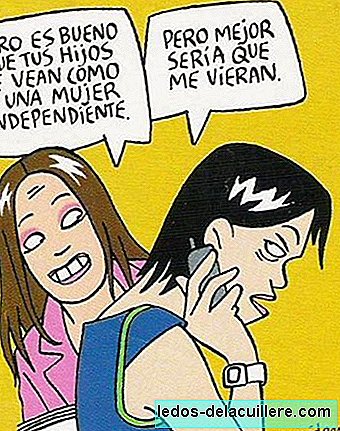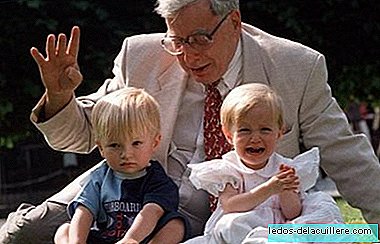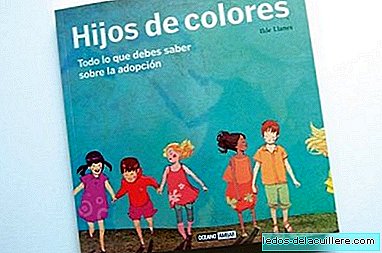
As Maitena wisely conveys in this vignette, there comes a time in the lives of many women who have to choose between them and their professional career or the upbringing of their children. Well, some may choose and others have no choice but to work. But we are going to focus on those who do have some freedom of maneuver in their lives.
The Spanish Minister of Defense Carme Chacón, to whom we have already dedicated several posts, has opted for full-time or exclusive work from 6 weeks after delivery, assuming the father the rest of the maternity leave. It is an option that our vice president Fernández de la Vega has described as “a model to follow”For the rest of the mothers and example of conciliation and equality policy. But I ask myself several questions:
- Is it an example that since we only have an average child in Spain (1,4), we don't even raise it for 2 months?
- Have right that baby to breastfeeding? Doesn't WHO and UNICEF recommend 6 months of exclusive breastfeeding and should this be a public health priority?
- Do babies really care about our economic and social system?
- Do governments know what parenting is with attachment and bonding and the mother-baby fusion of early childhood?
- Is it equal for the father to take the place of the mother at the moment when it is most important in life? Do not can the father complement rather than exclude?
- Is it reconcile to see your child on photo and on weekends or is it simply and simply quitting?
- Do modern women and feminists not raise their family? Do mothers who do dedicate our time to children waste our talent and are troglodytes?
- Is it the same as a baby in love than in a mature one?
- Is the poor quality time (few hours a day and usually bath and dinner) comparable to full-time or part-time upbringing?
Many questions that each family must answer depending on your heart, philosophy of life and economic possibilities.
Babies have needs above their parents' personal ambitions and obsolete sexist theories that make us believe that we are equal-androgynous in everything without taking into account the biology or ideosincracia of each sex. As Isabel Fernández del Castillo says “today we know that the mother-child bond is the substrate of the same capacity to love, to live together. Supporting it or not has a deep social significance. ”
Babies are the weakest link in the social chain and many are not entitled to their own mother or father or the first months of life. But the most human and advanced societies are those that do take into account and respect their needs: Sweden has 64 weeks of maternity leave, Norway 52, Denmark 50, Finland 44 and Iceland about 40.
These countries know that investing in the first years is the most profitable socially because it results in physical and mental health in its population. And these mothers, in addition to raising their children, are also the most active in Europe and with better jobs. Life does not end by changing many diapers!
¿Can you work and raise at the same time? Of course. Throughout the history of mankind and throughout most of the planet, women have always worked but with or near their children. It is in our adult-centered economic model that both parents are all day abducted Away from their children. And there are many options (as many as people) to reconcile work or family: leave, part-time work, work close to home, telecommuting, etc.
Madam Minister, you are not for me an example to follow as a mother, simply because you will hardly practice as such.
Although it is politically incorrect, I prefer to be a mother of insumisa or gonzalizing or slow or soft or attached or as you want to say. In the end everything is the same: mammalian mother of a mammal baby that mom needs. Without more tags.












